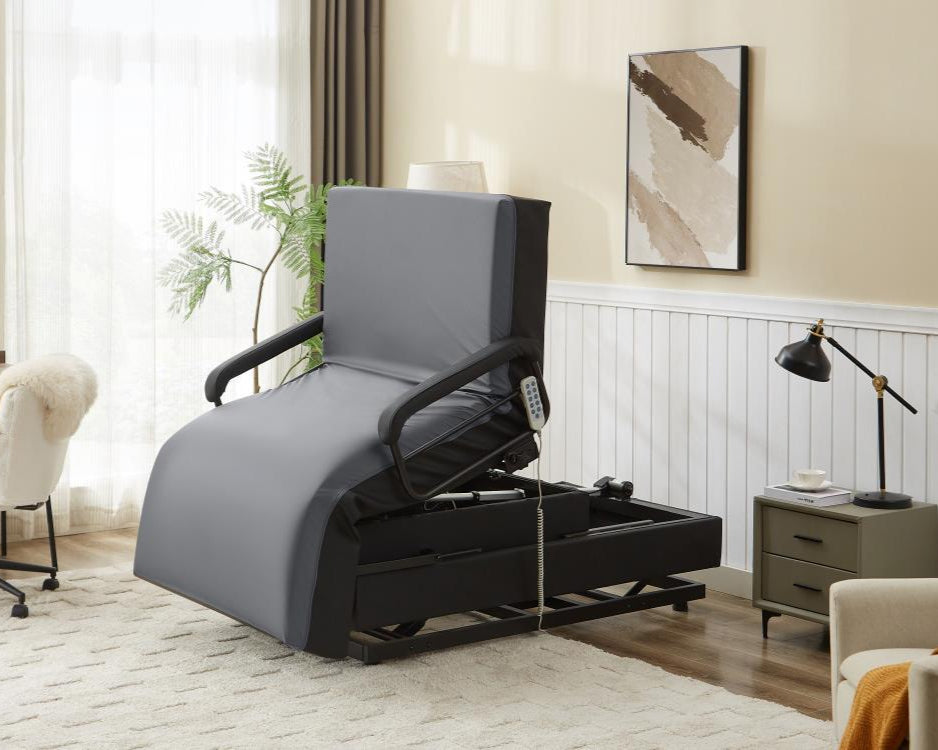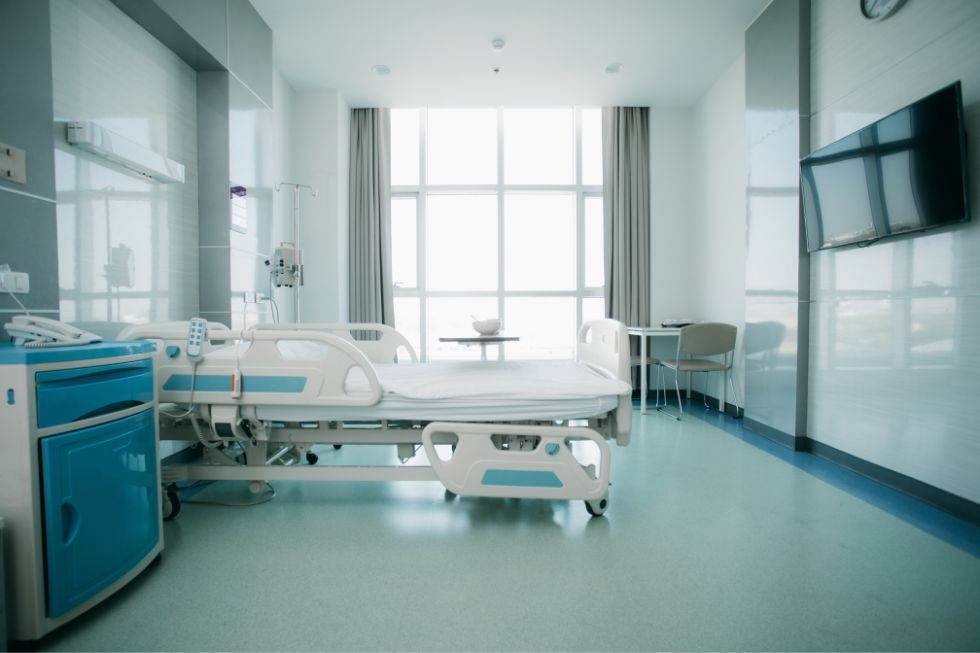Excitement About Hospital Beds For Home Use
Excitement About Hospital Beds For Home Use
Blog Article
The 15-Second Trick For Hospital Beds For Home Use
Table of ContentsSome Known Factual Statements About Hospital Beds For Home Use Hospital Beds For Home Use Things To Know Before You Get ThisAbout Hospital Beds For Home UseSome Known Details About Hospital Beds For Home Use The Main Principles Of Hospital Beds For Home Use Not known Incorrect Statements About Hospital Beds For Home Use The Only Guide to Hospital Beds For Home Use
There are 3 major kinds of medical facility beds: manual, semi-electric, and fully-electric. These beds make use of hand cranks to readjust the bed's elevation and increase and lower the head and the foot.
Semi-electric beds have an electric motor to elevate and decrease the head and foot parts of the bed (hospital beds for home use). Full-electric beds have an electrical motor that can increase the head and foot areas of the bed as well as the whole height and positioning of the bed.
Top Guidelines Of Hospital Beds For Home Use
Some versions can additionally move right into more placements, such as the Trendelenburg (tilt) placement. There are numerous kinds of healthcare facility beds, each made to satisfy particular individual needs. Here are some typical types: This is the most typical sort of medical facility bed, developed for basic clinical usage. It has a manual or electrically adjustable headrest, foot rest, and height.
Reduced to the ground than a standard bed. This type of bed is developed for larger individuals, with a bigger structure and greater weight capacity than a basic bed.
This kind of bed is created for seriously sick people that require open tracking and specialized clinical devices such as ventilators and mixture pumps. This kind of bed is created for usage throughout labor and shipment, with adjustable settings and functions to support the mother and baby during the birth process.
Not known Facts About Hospital Beds For Home Use
Multiple feature and the accessories perform increasing grip to different components of the vertebra and the extremities without relocating the human body. These are simply a few examples of the sorts of healthcare facility beds offered. The specific sort of bed utilized will certainly depend upon the client's problem, medical needs, and various other elements.
Below is things you require to understand. A one-function medical facility bed is a clinical bed that enables a patient to move just the head or foot section up or down. A 2 feature healthcare facility bed usually describes a sort of clinical bed that has 2 flexible features to assist people in health centers or care centers.

Hospital Beds For Home Use - Questions
A 7-function ICU bed is a kind of clinical bed that provides several adjustable functions to sustain seriously unwell patients in a critical care unit (ICU) (hospital beds for home use). The 7 functions generally include: Backrest modification: The backrest can be adapted to numerous angles to aid the client stay up or lie down comfortably
Height modification: The bed can be elevated or decreased to make it easier for patients to enter and out of bed, and for caretakers to give additional reading treatment. Trendelenburg setting: The entire bed can be tilted to promote blood circulation and blood circulation in the body. Reverse Trendelenburg setting: The bed can likewise be tilted in the opposite instructions to advertise blood flow and circulation in the top body.
1. What Dimension is a Healthcare Facility Bed? 2. Exactly how Much Does a Medical Facility Bed Cost? 3. Why Do Hospital Beds Have Side Bed Rails? 4. What Are The Key Medical Facility Bed Parts?. While even more cost effective than electrical models, these beds call for exertion for modifications. The major advantages of hand-operated beds are their cost and reliability, as they do not depend on electrical power. The demand for hands-on initiative can be a limitation in circumstances where fast modifications are necessary or where caretakers encounter physical obstacles.
All about Hospital Beds For Home Use
Semi-electric health center beds use an equilibrium of guidebook and electrical controls. These beds give a perfect middle ground between handbook and fully electrical options, offering simplicity of use without the full cost of electric models.
Semi-electric beds are well-suited for people that require moderate modifications to the head and foot sections yet can take care of without regular height changes. This makes them an affordable service for those seeking convenience and comfort without the requirement for constant repositioning. Totally electrical healthcare facility beds feature electric controls for smooth modifications to the height, head, and foot areas.
Specialty hospital beds, such as ICU beds, long-lasting care beds, and bariatric beds, are carefully made to attend to particular medical demands. These beds provide tailored look after diverse person groups, improving both end results and comfort. In the adhering to areas, we will check out the main sorts of specialty hospital beds, describing their specific advantages and applications.
With years of experience in manufacturing electric linear actuators - hospital beds for home use and close partnership with the medical care market, TiMOTION is well-positioned to give dependable medical care options. Our up and down integrated business manages every action of the production process, from layout to actuator assembly, ensuring we supply extraordinary worth and customized services customized to your specific requirements
The Buzz on Hospital Beds For Home Use

For more information concerning integrating these modern technologies into your items, contact us today. More reading:.
Data is sourced from the Medicare Price Record.

Unknown Facts About Hospital Beds For Home Use
A hospital bed is a bed designed specifically for clinical objectives. It is not just a location for clients to relax, but additionally a system for medical operations. Unlike ordinary home beds, healthcare facility beds normally have adjustable functions, which can assist in medical staff to make numerous modifications according to the requirements of patients, such as transforming the elevation, inclination, and assistance angle of the back and legs of the bed.
Report this page